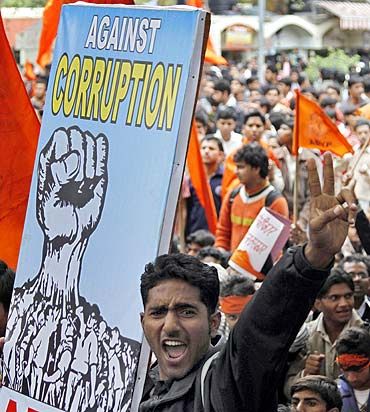 The enactment of Lokpal and Lokayuktas Act will help the Central Vigilance Commission work in an independent and assertive manner, the government said on Wednesday.
The enactment of Lokpal and Lokayuktas Act will help the Central Vigilance Commission work in an independent and assertive manner, the government said on Wednesday.
The Central Vigilance Commission has been given a statutory status by the enactment of the CVC Act, 2003 on account of which it can function in an independent and objective manner, Minister of State for Personnel, Public Grievances and Pensions Jitendra Singh told Lok Sabha in a written reply.
"With the recent amendments carried out in the CVC Act, 2003, through the Lokpal and Lokayuktas Act, 2013, and the powers and functions already available with the Commission, the CVC is in a position to function in an independent and assertive manner for tackling corruption cases," said Singh.
The CVC also has been bestowed with the powers of superintendence over the Central Bureau of Investigation in so far as it relates to investigation of offences alleged to have been committed under the Prevention of Corruption Act, 1988, to ensure greater objectivity and accountability in its functioning, he said.
In addition, amendments to Section 8 of the CVC Act, 2003 were made recently through the Lokpal and Lokayuktas Act, 2013 (1 of 2014) by inserting new sections 8A and 8B empowering the Commission to enquire into references made by the Lokpal in respect of members of Group 'B', 'C', 'D' services of the central government and such level of officials or staff of the corporations, companies, societies and local authorities owned by the central government, the minister said.
.jpg)









